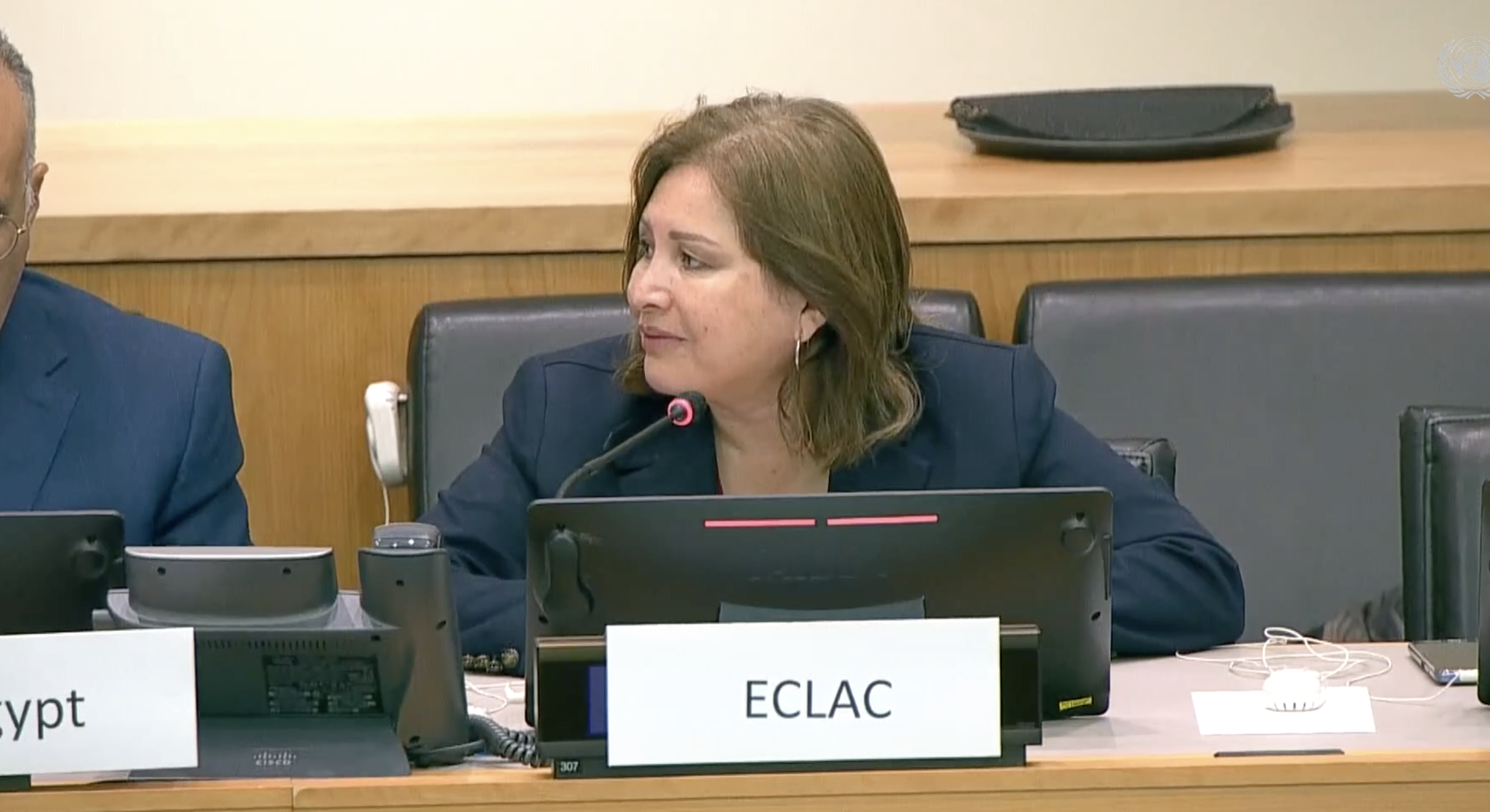The United Nations Regional Commissions got together to share the outcomes of the regional preparatory meetings and dialogues convened for the UN Water Conference
Work area(s)
Topic(s)
On the third day of the United Nations Water Conference 2023, ECLAC participated in the side event "Accelerating the implementation of the Water Action Agenda", co-organized by the five United Nations Regional Commissions, for Latin America and the Caribbean, Asia and the Pacific, Europe, West Asia and Africa.

The 2023 UN Water Conference served as the comprehensive midterm review of the Water Action Decade, 2018-2028, which emphasizes the importance of cooperation and partnerships at all levels to achieve the internationally agreed goals and targets related to water. In preparation for this review, the five United Nations Regional Commissions (the Economic Commission for Africa (ECA), the Economic Commission for Europe (ECE), the Economic Commission for Latin America and the Caribbean (ECLAC), the Economic Commission for Asia and the Pacific (ESCAP), and the United Nations Economic and Social Commission for Western Asia (ESCWA) engaged member states and stakeholders in regional consultations during 2022 and 2023 that assessed progress and identified priorities and regional initiatives to mobilize water action.
In this context, on Friday, March 24, the parallel event "Accelerating the implementation of the Water Action Agenda" was held. The event aimed at sharing the results of the regional preparatory meetings and dialogues convened in the five regions in preparation for the 2023 UN Water Conference. The executive secretaries of the regional commissions, the ministers responsible for water and the representatives from civil society shared their ideas and commitments to accelerate the achievement of water-related goals. The event included two panels, a thematic panel focused on water priorities and a second panel focused on the means of implementation.
In the presentation of Mr. José Manuel Salazar-Xirinachs, Executive Secretary of the United Nations Economic Commission for Latin America and the Caribbean (ECLAC), Mrs Jeannette Sánchez, Director of the Natural Resources Division of ECLAC participated in the first panel presenting the Regional Water Action Agenda for Latin America and the Caribbean, which is the main outcome of the 2023 Regional Water Dialogues that took place in February 2023. The agenda includes the main voluntary commitments expressed by the countries, civil society, and regional institutions and organizations. Moreover, it aligns and reinforces several previous treaties, agreements and strategies on water management and constitutes a call to action to mobilize all the region's political, technical and financial resources. In particular, the Agenda highlights the areas of prioritization and necessary efforts to accelerate the achievement of SDG 6.
At the 2023 Regional Water Dialogues, a set of actions and commitments were agreed upon, and some of the highlighted ones were:
- Identification of the need to promote democratic water governance through strengthening technical capacities for decision-making on all levels and to move forward strongly in the construction of a sustainable and inclusive water transition.
- In addition, it was agreed that the region urgently needs to strengthen the adoption of Integrated Water Resources Management (IWRM) practices to increase resilience to climate change and mitigate the impact of disasters.
- Moreover, the region needs to adopt new investment models and form private-public partnerships, including various actors from civil society and local communities to access financing and promote a new culture and appreciation of water.
- And lastly, it promises to harmonize political processes for decision-making, monitoring, and management of shared cross-border waters, recognizing community management and that of indigenous peoples, in a framework of dialogue with a focus on creating inclusive alliances for water.
To summarize the inputs from the five United Nations Regional Commissions, the “United Nations 2023 Water Conference, Mid-term Review of the Water Action Decade: Key messages from the United Nations Regional Commissions” was published. The booklet provides a snapshot of the agreed input from the regional discussions to the global event, reflecting the diversity of views and experiences. It also showcases progress, opportunities and challenges identified in the five regions as well as cross-cutting issues of common concern. The document also provides an overview of progress made in each of the five regions against the relevant SDGs, namely SDG 6 on Clean Water and Sanitation, and other global water-related mandates.